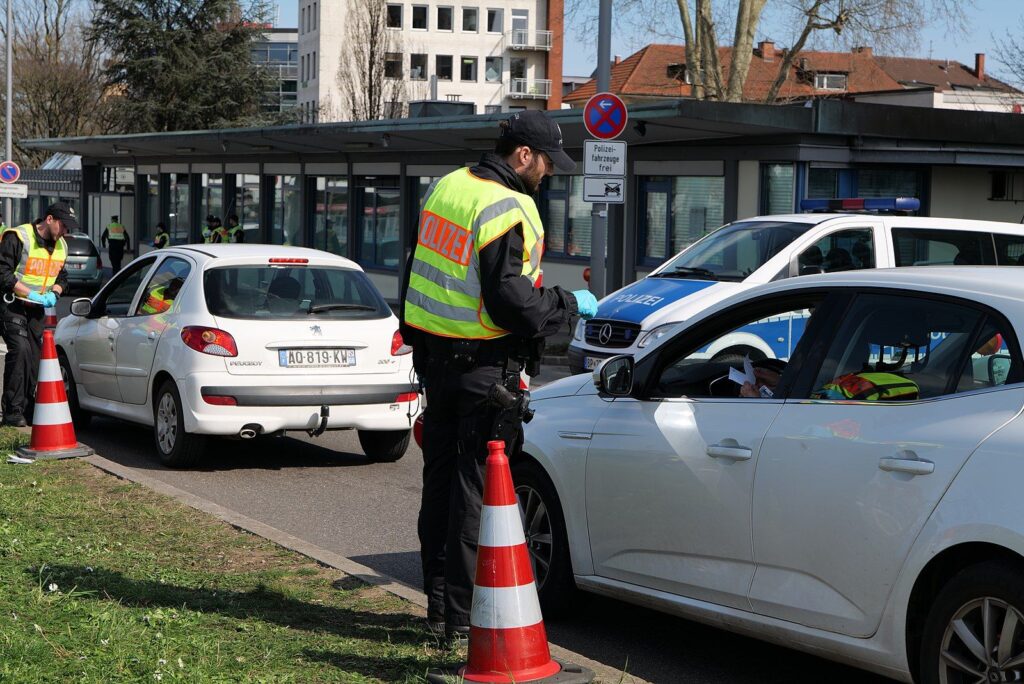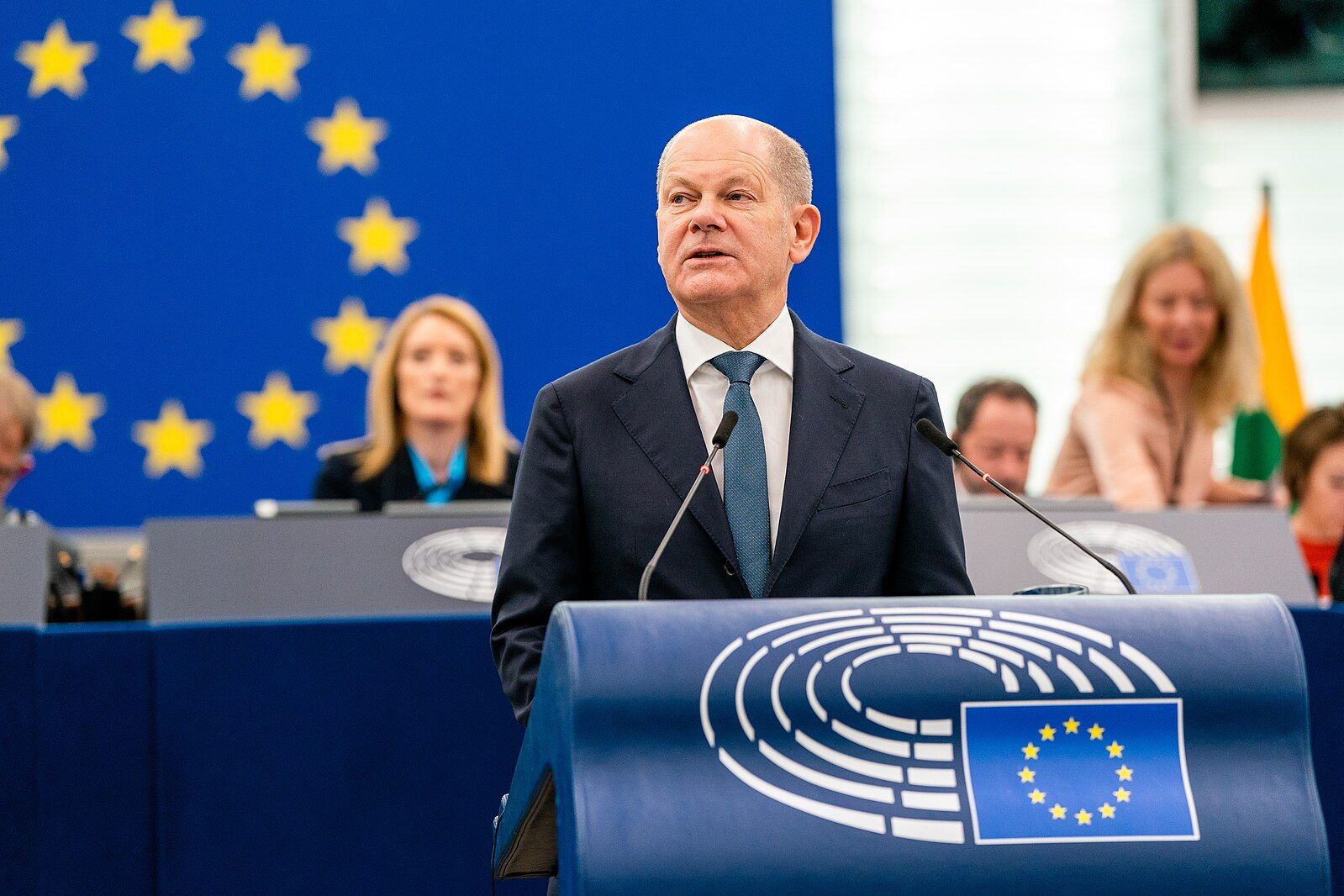Olaf Scholz and the German government have made the headlines in the last weeks due to new border controls toward their EU neighbours, yet the policy is hardly pioneering.
For almost a decade, controls have dominated the border between Sweden and Denmark without any sanctions. As the German border controls face criticism due to their dubious compatibility with the Schengen Agreement, Viktor Orbán – the President of sanctions-stricken Hungary – has showered Scholz with praise for standing up against illegal immigration.

German border controls will become an increasingly common sight in the future. Image: Wikimedia Commons
A Reaction to Domestic Pressures
On September 16, Germany reimposed passport controls along all its land borders, ostensibly to curb illegal immigration. Scholz, leading a government grappling with rising anti-immigration sentiment, seemed to be reacting to growing domestic unease. Pressure has been mounting upon the government with the recent success of the right-wing Alternative für Deutschland (AfD) in the regional elections in Thuringia and Saxony, and with the federal elections scheduled for next year, Scholz saw the chance to improve his standing in the polls. Whether the Prime Minister and his government have acted out of genuine conviction or a desire to please the median voter remains to be seen.
Although controversial, the new policy does not score very high on the originality scale. As early as January 2016, the Swedish government instituted passport controls along the Öresund Strait in response to the European migration crisis, which began the preceding year. In 2015, the Swedish authorities had to process 163,000 asylum applications – primarily from Syria (51,338), Afghanistan (41,564), and Iraq (20,857) – and the government felt pressed to act. The Swedish Prime Minister at the time, Fredrik Reinfeldt, found himself in a predicament similar to that of Scholz today. Reinfeldt – although a centre-right politician from the conservative Moderates (M) – categorically refused any cooperation with the Sweden Democrats (SD), an anti-establishment party that has gained traction over the last years due to their anti-immigration and anti-Muslim rhetoric. Reinfeldt’s government saw stricter immigration policies and border controls as the only way to curb the rise of SD. In retrospect, this has proven futile – in the 2022 Swedish parliamentary elections, the Sweden Democrats emerged as the second-largest party, surpassing the Moderates in Parliament by five seats.
The Legality of Internal Border Controls
Regardless of whether the German government’s new stance on border controls will mitigate the growth of AfD, the question of their legality remains. As such, the more pertinent question is: Are the border controls compatible with the Schengen Agreement and the European project at large? Article 25 of the Schengen Borders Code (SBC) stipulates that the border controls and internal borders “shall only be reintroduced as a last resort” and “shall not exceed six months”. According to the interpretation of the Code by the Court of Justice of the European Union (CJEU), the border controls may be renewed by the same duration ad infinitum, but only if certain conditions are met. The CJEU shed further light on the matter through the landmark case NW v. Landespolizeidirektion Steiermark, which addressed Austrian border controls introduced in 2015. Four years later, in 2019, when NW crossed the Slovenian border to Austria, the controls were still in place. In the end, the CJEU ruled that the duration of internal borders may only be prolonged in case of a renewed security threat. As such, a continued threat that the government in question has failed to address is not sufficient justification for an indefinite extension of controls.

Olaf Scholz during a recent visit to the European Parliament. Image: Wikimedia Commons
A further criterion listed in the SBC is proportionality. The Swedish and Danish governments have used crime prevention, migration management, and other security concerns as pretext for their border controls. However, it remains highly dubious to what extent these perceived threats accurately reflect reality. In the entire period between 2016 and 2023, Sweden received fewer asylum applications than in 2015 alone, according to data from the Swedish Migration Agency. As such, it is unclear to what extent one can speak of any emergency situation beyond the 2015 migration crisis, making claims of a renewed threat seem exaggerated.
The German situation is largely similar. While the number of asylum seekers and illegal immigrants has risen in recent years, the scale of the current influx pales in comparison to the 2015 migration crisis. Last year, the German authorities processed 350,000 asylum applications – significantly fewer than the 750,000 applications seen in 2016 (see statistics). This disparity casts doubts on whether the new measures are proportional to the current threat level.
The Domino Effect on EU Unity
What is beyond dispute, however, are the risks posed by this precedent. Germany’s decision has repercussions beyond its own borders and may trigger a domino effect across Europe. Following Sweden’s lead in 2016, Denmark swiftly imposed controls on its border with Germany, setting off a chain reaction that could now be repeated across Europe. If more countries follow suit, the very concept of a borderless Schengen zone – one of the EU’s crowning achievements – could be at risk.
States that exploit the legal ambiguities of the SBC also risk forfeiting the moral authority they often claim within the European Union. Notably, countries such as Germany, Sweden, and Denmark are on precarious ground when criticising Hungary for its border policies while failing to live as they preach.
As late as last week, the European Commission announced that it would withhold €200 million in EU funds from Hungary due to its refusal to pay CJEU-imposed fines for failing to comply with EU asylum policies. The Hungarian fines – although justified – combined with the EU’s lenient approach to Northern European border controls will only undermine the credibility of the Union and foster perceptions of double standards. Orbán did not miss the chance to point out this glaring inconsistency, saying: “Hungary is being punished by Brussels with heavy financial penalties, because we are protecting the borders, while other states /…/ are even closing borders themselves.”
A Shift Towards Unilateralism?
Nevertheless, Orbán is likely very pleased by the current situation, as it bolsters the legitimacy of his own unilateralism. Despite Germany’s efforts to distance itself from Hungary, Scholz’s government has inadvertently taken the first step toward adopting a similar unilateral approach. By reinstating border controls without a clear legal basis under the SBC, Germany risks veering closer to the brand of national sovereignty over EU norms that Orbán champions. Or, as the Hungarian Prime Minister put it on the platform X, “Bundeskanzler Scholz, welcome to the club! #StopMigration.”
Germany may not be the first EU Member State to introduce border controls of dubious legality – nor will it be the last – yet the precedent is troubling nonetheless. Ultimately, it all boils down to one fundamental question that most decision-makers in Brussels may be reluctant to ask: If Germany, Sweden, and Denmark refuse to adhere to EU law – who will?


